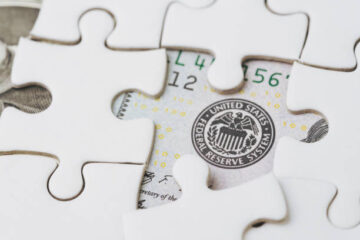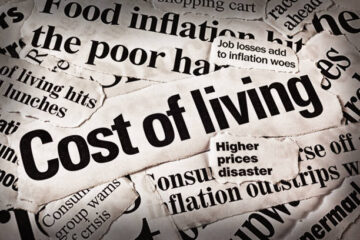You know things are bad when even the penguins can’t get a break.
President Donald Trump’s sweeping global tariff plan on more than 180 countries includes the Heard and McDonald Islands, two tiny, remote Antarctic outposts populated by penguins and seals.
💵💰Don’t miss the move: Subscribe to TheStreet’s free daily newsletter 💰
Australian Trade Minister Don Farrell told Australian Broadcasting Corp. that the tariffs were “clearly a mistake.”
“Poor old penguins, I don’t know what they did to Trump, but look, I think it’s an indication, to be honest with you, that this was a rushed process,” he said.
Related: Don’t expect the Fed to rescue stocks from tariff gambit
Markets tumbled after Trump proclaimed April 2 “Liberation Day.” The Dow Jones Industrial Average was down 1,200 points at last check.
President Donald Trump unveils his sweeping tax plan.
BRENDAN SMIALOWSKI/Getty Images
Trump: Americans may feel some pain
The bad news continued when China unveiled its first round of reprisals to U.S. tariffs, announcing a 34% levy on all American goods starting April 10. The move effectively confirms an escalating trade war between the world’s two biggest economies.
South Africa is reportedly seeking to negotiate a new “bilateral and mutually beneficial trade agreement,” and India’s Department of Commerce is also “carefully examining the implications.”
Denmark’s industry minister, Morten Bodskov, said the country was ready to “stand firm” in response to Trump’s tariffs.
Trump has said Americans may feel “some pain” because of tariffs, but he has also said the long-term goals, including getting more manufacturing jobs back to the U.S., are worth it.
Related: Analysts see challenges for Apple over tariffs
The president likened the situation to a medical operation, where the U.S. economy is the patient.
“For investors looking at their portfolios, it could have felt like an operation performed without anesthesia,” Brian Jacobsen, chief economist at Annex Wealth Management, told the Associated Press.
But Jacobsen also said the next surprise for investors could be how quickly tariffs get negotiated down.
“The speed of recovery will depend on how, and how quickly, officials negotiate,” he said.
Paul Christopher, Wells Fargo’s head of global investment strategy, said the tariff regime was likely to bring further selling in equity markets, lower fixed-income yields, and a modest pullback in the U.S. dollar’s exchange value.
“Our guidance is patience, as markets digest the new tariffs and the responses of governments, companies and households,” he wrote in a note to investors. “Our fundamental conviction remains that equity prices, bond yields, and the dollar’s value will rebound this year.”
Christopher said he expected the economy to gain some traction beginning in the coming months and that a recession remains unlikely.
Fund manager concerned about responses from other countries
Chris Versace, lead manager of TheStreet Pro Portfolio, is working on a short-term plan.
“While markets are still absorbing yesterday’s announcement, our concern remains focused on potential responses from tariff-slapped countries and companies as well as the reformulation of earnings expectations by market participants,” he said in his April 3 column.
Related: Fed official revamps outlook on U.S. economy amid tariff turmoil
All the uncertainty, along with slowing consumer spending, business uncertainty, and other factors, is poised to weigh on June-quarter guidance, he said.
Versace said the question to ponder is what could lead the market to rebound in a sustained manner and he came up with four possibilities.
In one scenario, Trump and other countries negotiate trade deals that render the reciprocal tariffs moot. Possible, Versace said, “and we’ll know more on this front in the coming days.”
Perhaps the March-quarter earnings season will surprise to the upside, but the veteran fund manager said this looked like a low probability since investors remain concerned about the June-quarter and revised 2025 guidance.
Scenario Three sees Trump delivering on tax cuts, which Versace labeled TBD, as in “To Be Determined.”
And finally the Federal Reserve could cut interest rates. Versace said “the odds of that are at least questionable given recent inflation data and the potential for tariffs to stoke those figures higher.”
While investors will be tempted to buy the dip and pick up some shares on the extreme cheap, he said, hurdles remain.
“We’ll continue to update our thinking as trade developments unfold, but we will continue to follow the data and be on the lookout for earnings preannouncements,” Versace said.
Related: Veteran fund manager who forecast S&P 500 crash unveils surprising update


